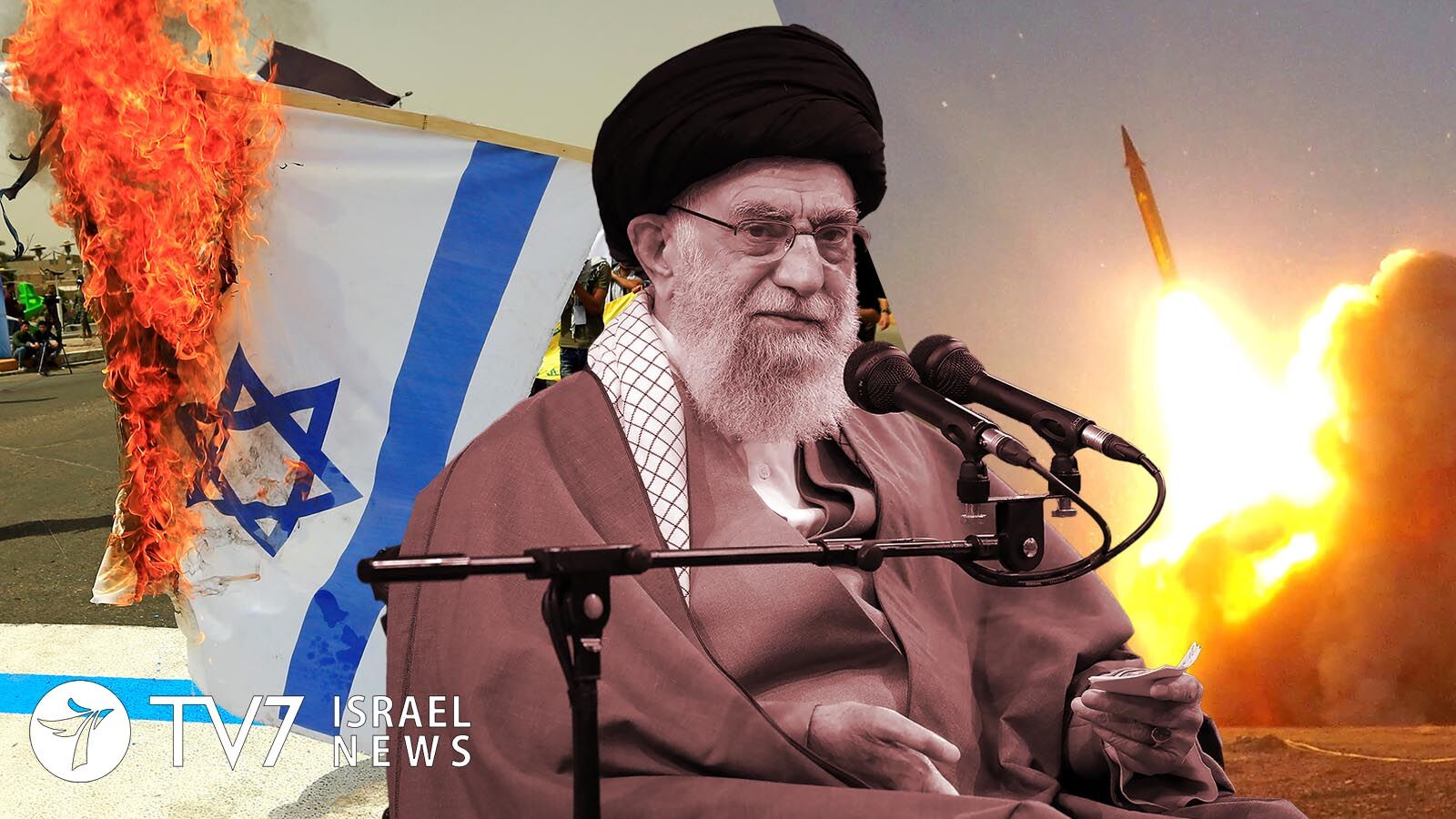The assessment came from Israeli Defense Minister Benny Gantz during a briefing to members of the Knesset Foreign Affairs and Defense Committee.
By Erin Viner
“The State of Israel faces significant strategic challenges. From an operational standpoint and in terms of urgency, the biggest challenge that we face is the Iranian threat,” the defense chief told Israeli lawmakers.
According to a statement TV7 obtained from the Israeli Ministry of Defense (IMoD), Gantz said there have been “two significant achievements” that have brought the international community together to form a united front against the Islamic Republic. The first, said Minister Gantz, was the decision by the United States to keep Iran’s Islamic Revolutionary Guards Corps (IRGC) on the blacklist of Foreign Terror Organizations (FTO), followed by condemnation by the International Atomic Energy Agency (IAEA) of Tehran’s noncompliance with investigations and inspections.
“These issues demonstrate once again that Iran is not a partner, and in order to achieve a nuclear agreement that will push Iran back from its ambitions, the entire world, led by our friend the United States, must employ political, economic and military pressure,” Gantz asserted.
Saying that he has been “leading an extensive program” over the past year with his counterparts at the Pentagon and in the U.S. administration to bolster cooperation between Israel and countries in the region, Minister Gantz expressed his hope that the initiative will be further advanced during US President Joe Biden’s upcoming visit to the region next month.
Biden’s 13-16 July itinerary includes slated stops in Israel and Saudi Arabia, where he will meet Arab leaders; as well as Palestinian Authority politicians. Washington hopes more cooperation, especially on security, would help further integrate Israel in the region and isolate Iran. It may also preface more normalization deals with Israel, including by heavyweight Saudi Arabia, following the forging of relations with the United Arab Emirates and Bahrain in 2020.
Minister Gantz also unveiled the “Middle East Air Defense Alliance (MEAD) to counter attempted Iranian attacks on regional nations with rockets, cruise missiles and unmanned aerial vehicles (UAV, drone aircraft). The new program “is already operative,” he said, revealing that MEAD “has already enabled the successful interception of Iranian attempts to attack Israel and other countries.”
The official statement did not name partner countries, provide additional details on the foiled attacks or elaborate on the ‘mechanics’ of the alliance. Reuters cited an Israeli official speaking on condition of anonymity as saying that “the partner countries are synchronizing their respective air defense systems through remote electronic communication, rather than using the same physical facilities.”
The governments of Saudi Arabia, Bahrain and the United Arab Emirates (UAE) have not immediately responded to requests for comments on the alliance mentioned by Gantz.
Last week, a Western diplomat in the region told Reuters that the Biden Administration is still working to convince the Gulf Cooperation Council (GCC) to agree to join a US-Israeli integrated air defense system. Saudi Arabia, the UAE, Bahrain, Qatar, Kuwait and Oman are GCC member states.
“(The proposal) would help to fill the gap left by the withdrawal of US hardware over the last two years from the region … and would draw Israel and Saudi Arabia closer to reaching a normalization deal,” said the diplomat.
While tensions continue to mount over Iran’s disputed nuclear program and regional aggression, Israel, Saudi Arabia, the UAE and parts of Iraq have come under UAV or missile strikes that have been claimed by or blamed on Iranian-backed terror groups.
Gulf states have particularly been frustrated over the perceived reduction of the US commitment to regional security, and not sufficiently responding to their concerns over advancement in the Islamic Republic’s ballistic missile program and sponsoring of proxy militias, such as Hezbollah in Lebanon and the Houthi rebels in Yemen.
